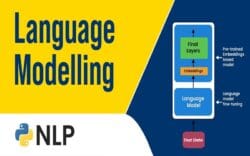1 Introduction
Words have power. Words have a context. Words could be understood differently, depending on the on the situation where the dialogue has taken place: the atmosphere, the context and the emotional feeling of the people being in the situation. There is another factor or in another word ‘other factors’ that could be taken into consideration whilst analysing words and their meaning. I would like to mention here the two main factors or producers of a dialogue.
2 Dialogue, Factors and Impacts
We all know that there are, Nowadays, and especially with the advance of technology other methods of producing speech or dialogue other than the humans; Virtual assistants, digital devices (tv, radio, etc) as a case in example, but let’s focus on the tradition factors and I mean here the human being. In a discussion between two individuals or more, the two factors ‘encoder’ and ‘decoder’ play an important role in the interpretation of spoken and received words. Intent is an important factor also. Intent is the aim, the goal or the reason for such communication. Intent is the factor causing a sort of discussion to happen and takes place. If you get to understand the intent of the encoder, you can produce a concise and clear response that will answer to the requester query. The ‘decoder’ is also taking part in the scenario. A message can be made of simple words and expressions. It can use formal or informal structures. It can also be produced in a different language. There is no rule on the way a message should be produced. A message is an expression about a situation, be it a dialogue between different individuals from different background or a conversation between an individual and a virtual entity. e.g., someone has inquired a virtual assistant about their location, either in their own national territory or while travelling to another place in the world.
3 Decoder and Encoder
Dialogues or discussion between individuals is a simple method of inquiring about a situation It can use ‘simple’ and easy to understand words and expressions, combined with vernacular words and it can differently use highly formal language. The decoder, who is in a dialogue environment, the receptionist, the analyst and the interpreter to a dialogue words and expressions has a partial control over the interpretation of a message. The decoder can, if they have received a complete message, free of grammar errors and with no missing element, transform, – sometimes translate – then interpret and change the nature of those words to express another meaning different than what the producer wanted to deliver. The decoder can interpret words and gives it a meaning that is different to the one it was set for. Words travel between different points or ends, a point ‘A’, ‘B’ or ‘C’ and even ‘D’ depending on where and how this exchange has taken place. This journey is called in the dialogue science ‘transmission’. they deliver a message that can have both a ‘direct’ or ‘indirect’ meaning. Words can have power, depending -as said- the reception. Words can also lose part of their contents during the transmission. The transmission is a factor of a great importance in a discussion sphere. The environment has also an impact on the transmission. The environment is the ‘area’, ‘condition’ where words travel. A discussion can take place at school, university, between a teacher and their student(s) either in an amphitheatre or a classroom. It can take place between two colleagues in a work place, between two friends in a coffee, between two partners at home, in a cinema, theatre or in another social agglomeration. A dialogue can take place between an individual and a virtual assistant, machine.
4 Narrative Space
Environment is an important factor in human interactions because it can direct the way a communication happens. This includes a wide range of possible interactions, from interpersonal communication and virtual communities to participatory decision-making (Wikipedia). Words are interpreted according to participants; their relationships and the language being used in the exchange. Words are interpreted also according to the state of ‘completion’. A complete sentence expresses a complete thought. Incomplete sentences, or fragment, can provide Sometimes, a produce an emphasis or effect. A noisy environment could impact the production and reception of a discussion and render its meaning -somethings being understood in a different manner.














